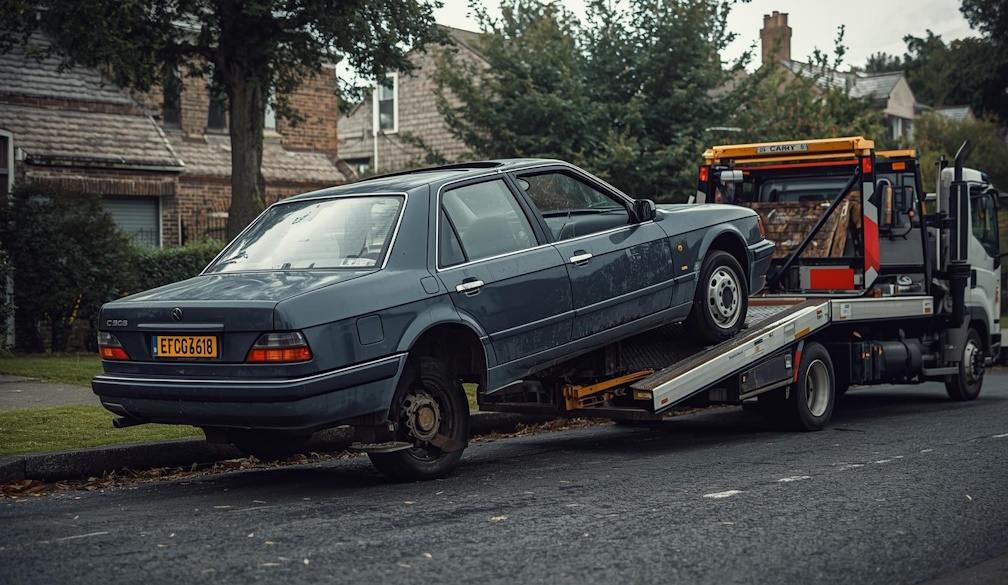Why Car Removal Melbourne Services Provide a Hassle Free Solution

When a vehicle reaches the end of its usable life, dealing with it can quickly become inconvenient. Car removal Melbourne services offer a straightforward way to dispose of unwanted, damaged, or non-running vehicles without the stress of private selling or ongoing maintenance. By providing direct pickup and handling all logistical steps, these services help vehicle owners resolve the issue quickly and efficiently.
Many cars sit unused due to mechanical failure, accident damage, or age. Leaving them parked for long periods can lead to safety concerns, space limitations, and unnecessary expenses. Professional car removal services eliminate these problems by offering a clear and reliable exit solution.
Understanding How Car Removal Services Work
Car removal services are designed to simplify vehicle disposal. Once an owner decides to remove a vehicle, the process typically involves a brief assessment followed by a scheduled pickup. Vehicles are collected directly from homes, workplaces, or other locations, regardless of their condition.
This approach removes the need for towing arrangements or workshop visits. By handling transport and processing, car removal services save time and effort while ensuring the vehicle is removed safely.
Accepting Vehicles in All Conditions
One of the main advantages of car removal services is their ability to accept vehicles in almost any condition. Cars that no longer start, have been written off, or are too expensive to repair are all eligible for removal.
This flexibility allows owners to dispose of vehicles that would otherwise be difficult to sell. Even incomplete or heavily damaged cars can still be collected, reducing the burden on owners who may not know how to handle disposal.
Freeing Up Valuable Space
Unused vehicles often occupy driveways, garages, or yards for extended periods. This can limit available space and negatively affect property appearance. Car removal services help reclaim this space quickly and effectively.
Removing unwanted vehicles improves accessibility and creates opportunities to use the area more productively. Whether the space is needed for parking, storage, or general improvement, removal provides immediate benefits.
Reducing Ongoing Costs and Liabilities
Keeping an unused vehicle can involve hidden costs. Registration renewals, insurance considerations, and maintenance expenses add up over time. Removing the vehicle eliminates these ongoing obligations.
There are also liability risks associated with abandoned or deteriorating vehicles. Removing them reduces the chance of safety hazards, council issues, or environmental concerns.
Supporting Responsible Vehicle Disposal
Vehicles contain materials that should be handled responsibly at the end of their lifecycle. Car removal services ensure that vehicles are processed correctly, with recyclable components separated and waste managed appropriately.
This responsible approach helps reduce environmental impact. By diverting materials from landfill and supporting recycling, removal services contribute to more sustainable automotive practices.
Convenient Pickup and Minimal Disruption
Convenience is a major reason people choose car removal services. Vehicles are collected from the owner’s location, often at a time that suits their schedule. This eliminates the need for travel or coordination with multiple parties.
Minimal disruption makes removal services suitable for busy households and businesses. The process is designed to be efficient and unobtrusive.
Simplifying Decision Making
Deciding what to do with an unwanted vehicle can be stressful. Private selling often involves uncertainty, while repairs may not be cost effective. Car removal services offer a clear alternative that removes complexity.
By providing a direct solution, these services help owners make decisions confidently and move forward without prolonged delays.
Suitable for Individuals and Businesses
Car removal services cater to both private vehicle owners and businesses. Individuals benefit from the quick disposal of personal vehicles, while businesses can clear fleet vehicles, workshop stock, or surplus cars efficiently.
This versatility makes removal services useful across a wide range of situations, from single-car disposal to managing multiple vehicles.
Avoiding Lengthy Selling Processes
Selling a vehicle privately can involve advertising, inspections, and negotiations that take time and effort. For vehicles in poor condition, these steps may not lead to a successful sale.
Car removal services bypass these challenges by offering a direct solution. Owners avoid uncertainty and complete the process without unnecessary delays.
Providing Peace of Mind
Knowing that an unwanted vehicle will be removed promptly and responsibly provides peace of mind. Owners no longer need to worry about space, safety, or compliance issues.
This reassurance is especially valuable when dealing with vehicles that have been unused for long periods or are causing ongoing concern.
A Practical Choice for Vehicle Disposal
Car removal Melbourne services offer a practical and efficient way to handle unwanted vehicles. By simplifying disposal, freeing up space, and supporting responsible processing, they address common challenges faced by vehicle owners.
For those looking to remove a car without stress or ongoing costs, professional removal services provide a reliable solution that delivers convenience, clarity, and peace of mind.

